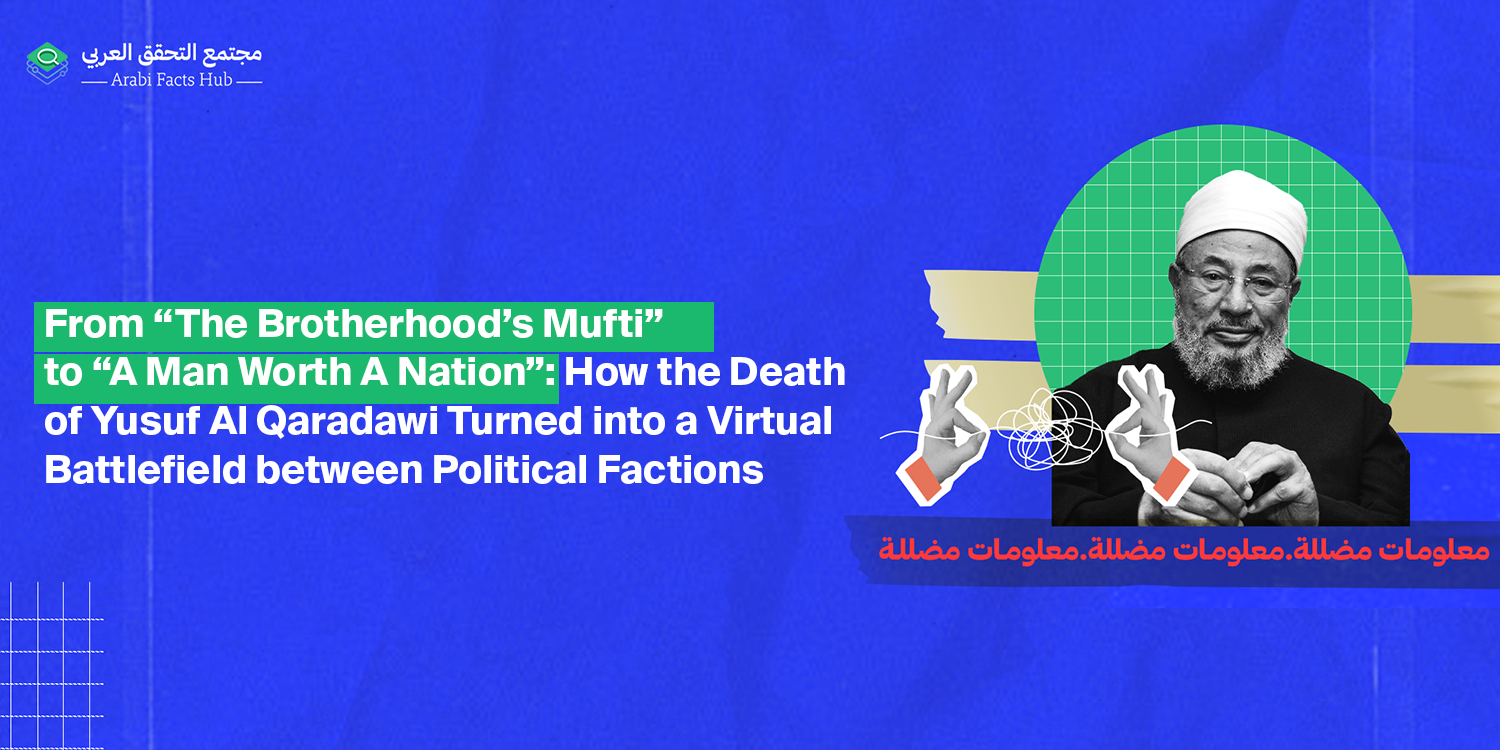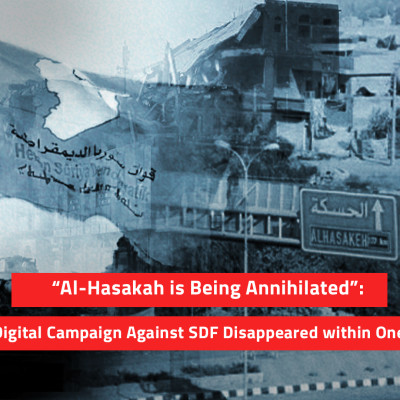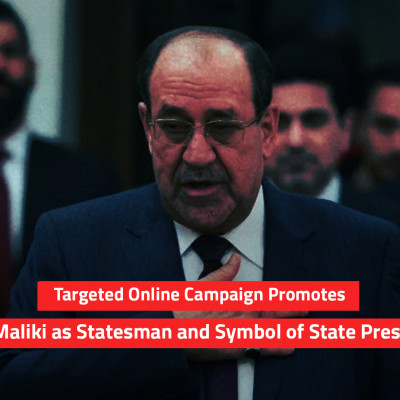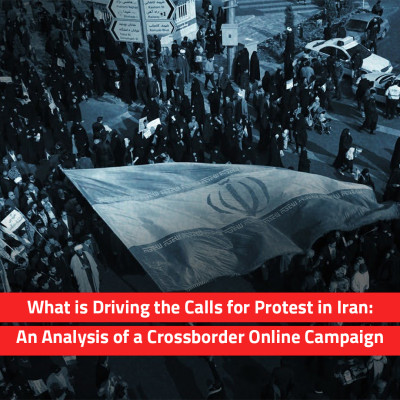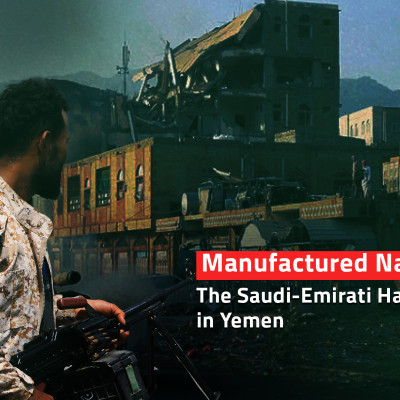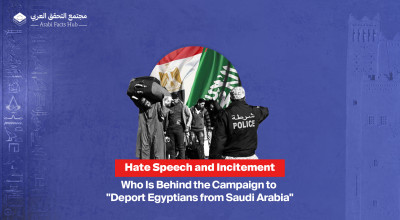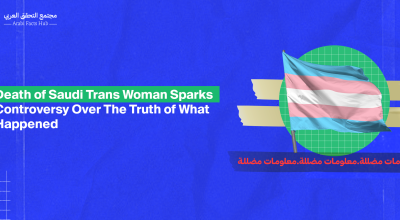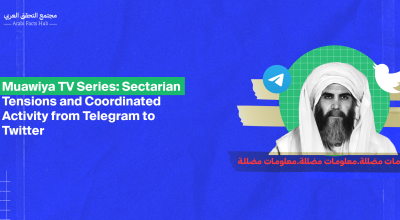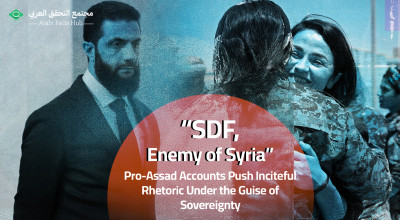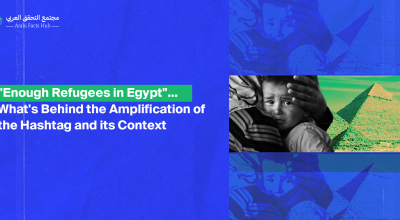What happened?
Following his death in Qatar on September 26, 2022, a contentious campaign arose against Al Qaradawi criticizing him for his close ties to the Muslim Brotherhood in Egypt. The criticism was fueled by his past involvement in the group's activities and his statements during the "Arab Spring", perceived by some as endorsing chaos. Ironically, Islamic groups also characterized his remarks as "deceptive fabrications about Islam."
The hashtag #Terrorism_Mufti was among the prominent tools in the attacking campaign against Al Qaradawi. The hashtag swiftly reached its peak on the same day as Al Qaradawi's death, driven by 902 tweets, 1040 retweets, and 3393 likes.
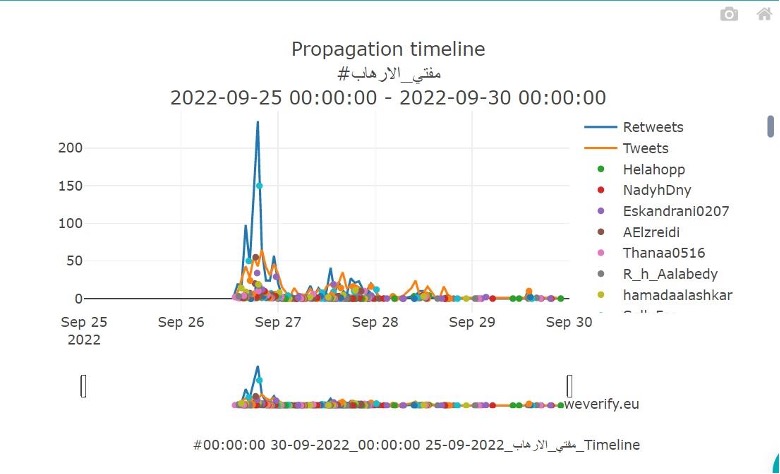
According to Gephi and InVID, 615 accounts participated in the hashtag, with 5 accounts being the most active in terms of interaction movements on the hashtag. These accounts are @Helahopp, @NadyhDny, @AnwarRabie1, @YdSaif1, @Mohamed32231067, in addition to the account @ClosedHeart20.
With the exception of @Helahopp, prominent account activity indicates consistent engagement in several online campaigns aimed to support the Egyptian government and criticize the opposition, utilizing misleading information and hate speech.
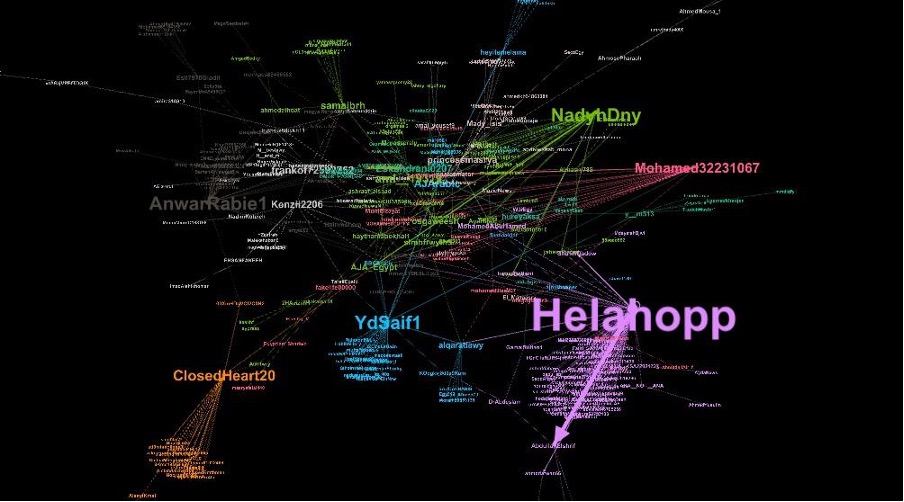
According to Gephi, the majority of accounts participating in the hashtag were from Egypt, Saudi Arabia, the UAE, and Qatar.
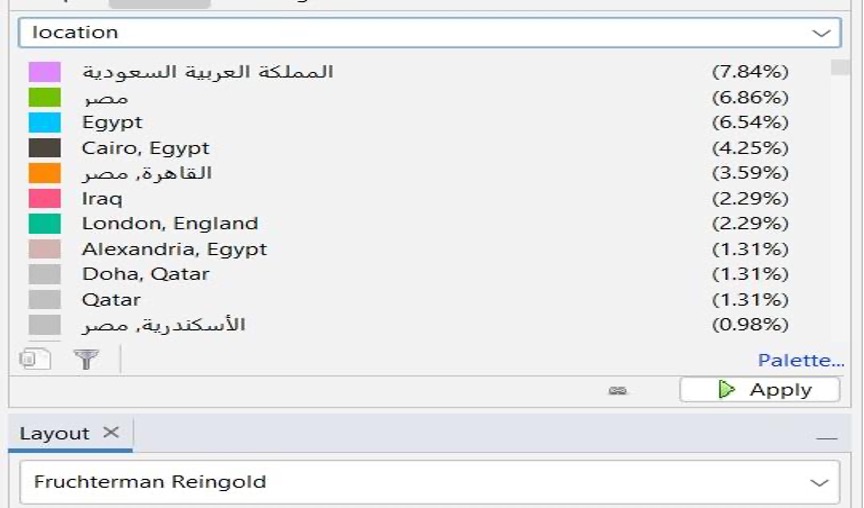
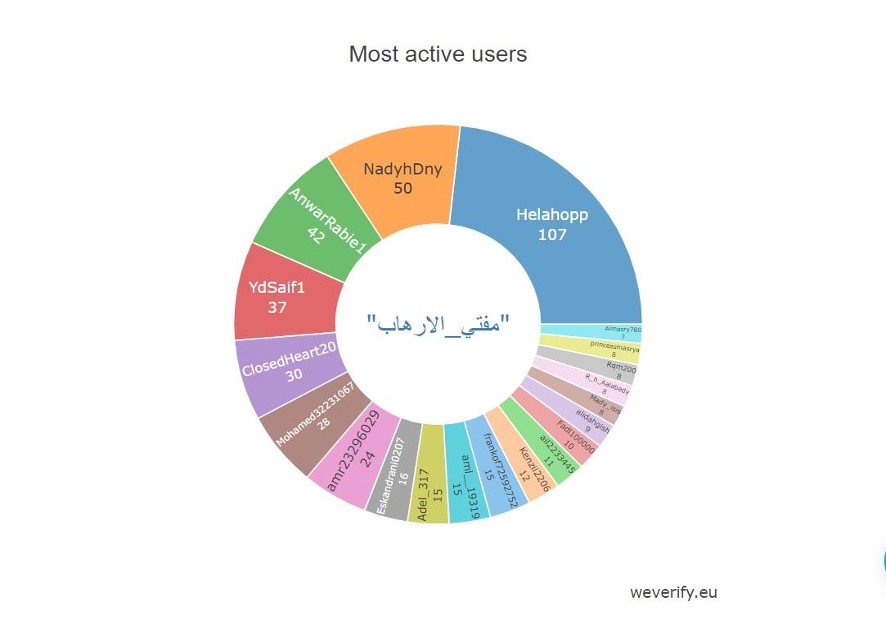
The account @Helahopp topped the list of accounts participating in tweeting on the hashtag #Terrorism_Mufti, with a total of 107 tweets. The account is owned by a person named Mohamed Hassan. On his Twitter account, Mohamed Hassan posted links leading to his other accounts on social media platforms, each bearing different names, including AstroSaudia. This is also the name of his Snapchat account, where he has 14 thousand followers. Hassan manages several channels on Telegram, with the largest one named "Astrological Map Analysis”, boasting 2800 subscribers. It appears that this individual is primarily interested in astronomy, tarot interpretations, and horoscopes. In addition, Hassan expresses support for Saudi policies through his Twitter account, and shares videos on his YouTube channel, mostly endorsing conspiracy theories and using clips from Egyptian Aliaa Gad.
Mohamed Hassan had a previous account before the current one which was created last July. Previous accounts might have been used in earlier online campaigns or used for sharing content violating Twitter's policies. When Elon Musk restored Trump's Twitter account, Mohamed Hassan appealed to Musk to restore his own closed account. In a tweet, he urged Musk to “set the bird free”. Hassan expressed a desire to "tweet again if my old accounts are restored, so we can express our opinions freely. It is unreasonable to only provide a platform for homosexuals god damn them and their opinions. Twitter has become a swamp for left-wing Democratic party values which promote decay, immorality, and corruption in a terrifying manner," according to his tweet.
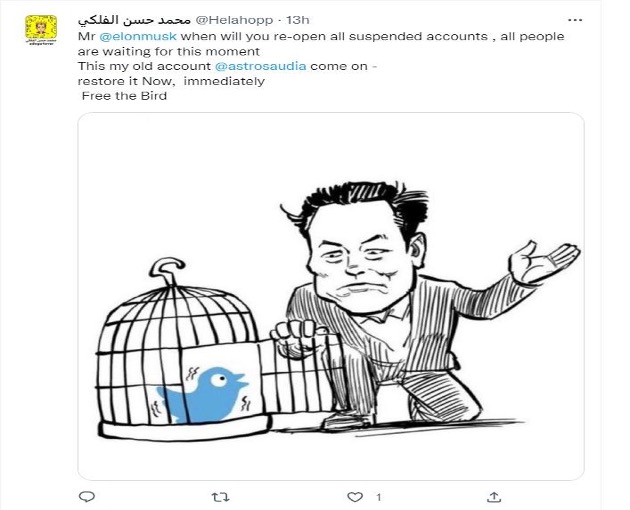
Responses formed a considerable part of Mohamed's interactions on the hashtag, including his comment on a controversial tweet by Israeli figure, Edi Cohen.
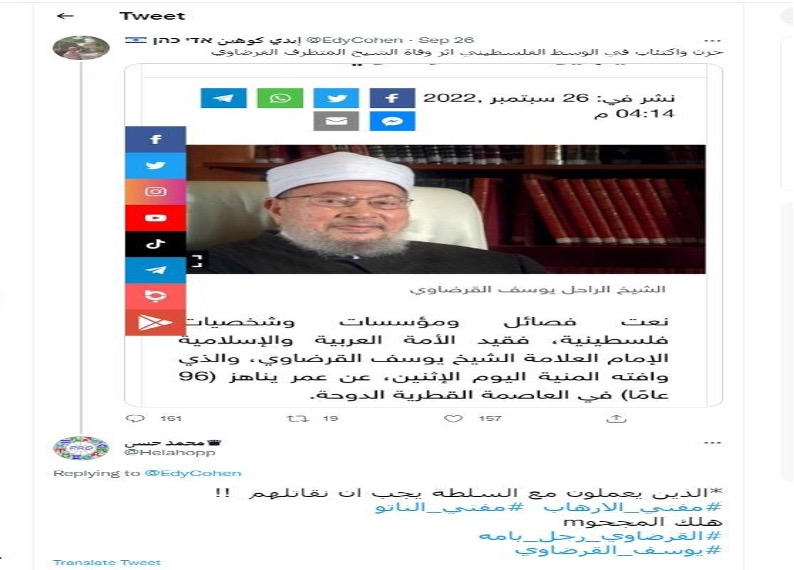
Like Mohamed Hassan, Nadia El Saadani, the owner of the second-largest number of tweets on the hashtag (50 tweets), claims that her new account is "Account (number) 60... Twitter is a dictator.. Every day a new account." It seems that she, too, violated Twitter rules. Nadia created her account last September. The account was followed by 47 people, and tweeted more than 500 tweets, setting a record within less than a month of its creation. However, a look at what she posts may offer some explanation, as she is focused on tweeting in support of Egyptian President Abdel Fattah El-Sisi. Most of her tweets are retweets from other accounts that are active in online campaigns with the same discourse. In one of her tweets, Nadia proudly mentions the rise of the hashtag on the list of most trending topics in Egypt.
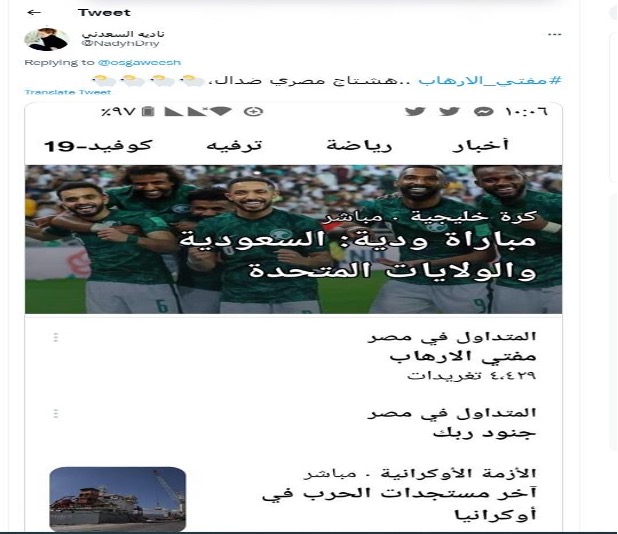
Nadia does the same on her Facebook account which was created around 2015. The images and videos she posts reflect her political interest as a Sisi supporter who likes Mubarak, and criticizes Qatar, Turkey, and the Muslim Brotherhood.
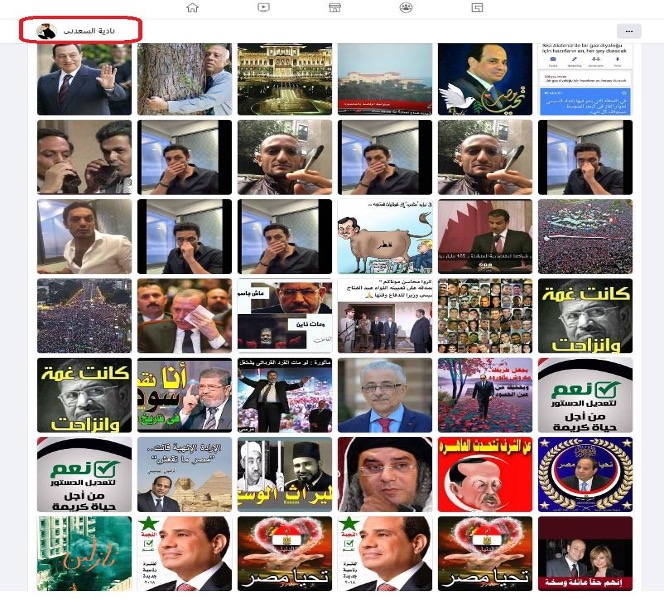
In addition to the highly active accounts, some of which may not have a large follower count, prominent accounts with a substantial following also joined the tweeting activity. Fahad Al Jubair, a Saudi cartoonist with nearly 100,000 followers, contributed to the discussions by sharing illustrations featuring Al Qaradawi alongside the LGBT flag. His caption emphasized, "Yusuf Al Qaradawi was the mufti of terrorism and homosexuality #Terrorism_Mufti."
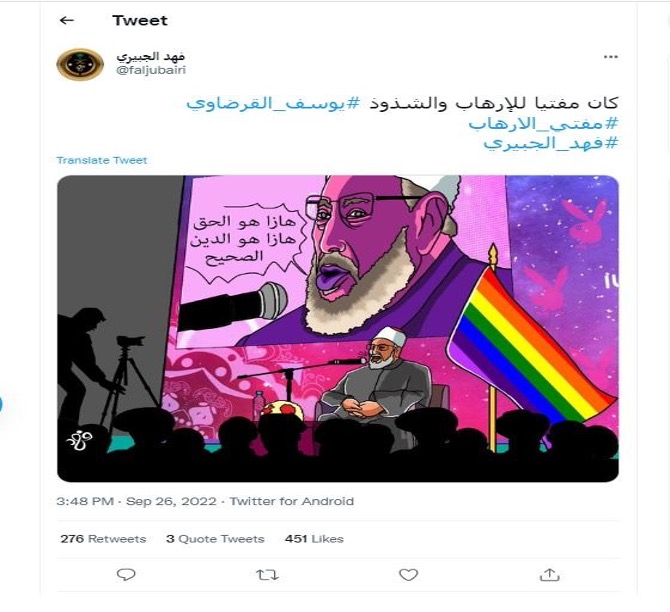
Similarly, the Saudi academic Ibrahim Al Mutlaq, specializing in Islamic studies at Imam Muhammad bin Saud University, with over 14,000 followers on Twitter, also expressed joy at the "death of the deviant mufti of terrorism, Yusuf Al Qaradawi." He considered that "those who do not rejoice in his demise should reconsider their faith and the soundness of their beliefs. If one does not rejoice in his demise, let them repent to God."
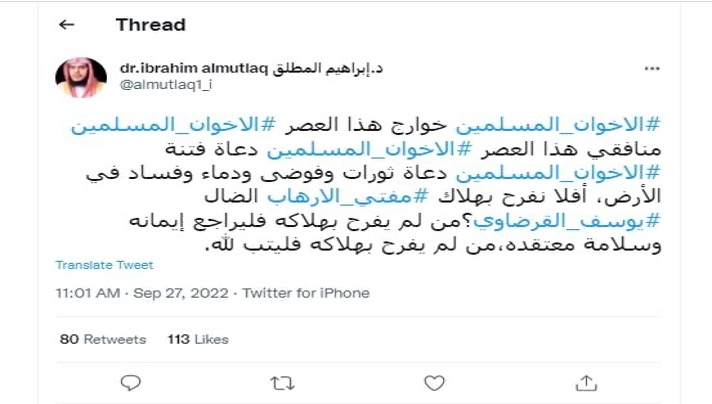
The gloating over Al Qaradawi's death and references to fatwas that are attributed to him extended to a call for the death of other preachers, such as Saudi Islamic preacher Salman Al Ouda. Salman was imprisoned in the Kingdom September 2017, a few months after the Gulf crisis erupted with Qatar (June). At that time, reports suggested that the preacher, whose ideas closely align with those of the Muslim Brotherhood, was imprisoned because of a tweet in which he prayed to God "to reconcile the hearts of the rulers for the good of the people."
Saudi accounts on the hashtag shared a picture of Al Qaradawi with Al Ouda on various occasions, such as the account "Um Abdulaziz," which features the Saudi flag and has published over two thousand tweets despite its recent launch in September.
On analyzing the account @SaudiLiii1l11, we observed its immersion in tweeting and retweeting from other Saudi accounts interested in supporting the Kingdom's leaders and policies, and engaging virtually with contentious issues in the Arab world, from Yemen and Iraq to Iran and Lebanon.
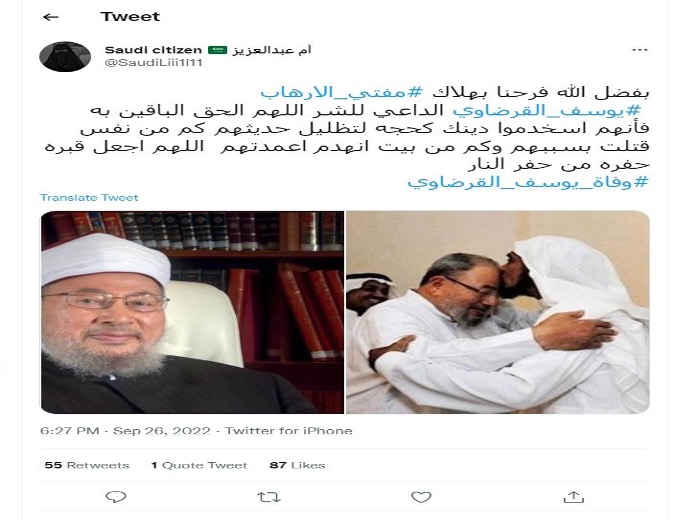
Related hashtags
The interactions on the hashtag #Terrorism_Mufti were associated with other hashtags that didn't have the same level of spread but conveyed similar meanings or discourse, such as #NATO_Mufti, #Blood_Mufti, #The_demise_of_AlQaradawi, #The_demise_of_Yusuf_AlQaradawi.
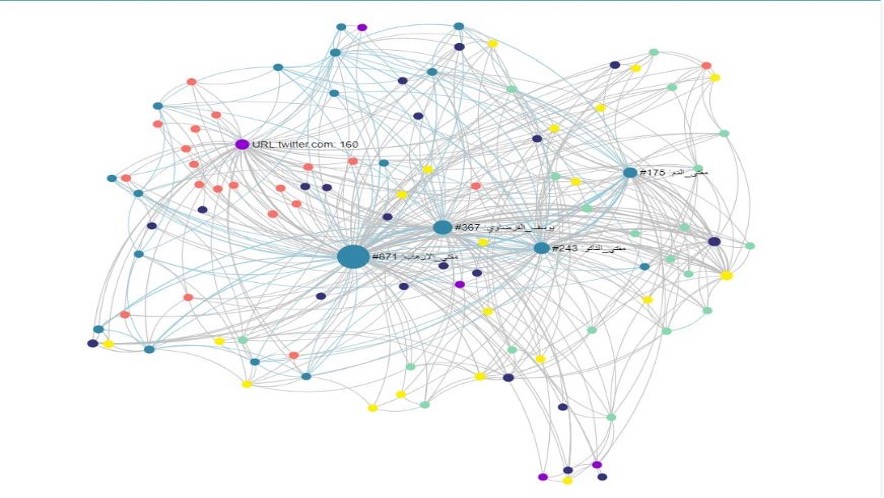
Illustration from SNA – InVID for the hashtags associated with #Terrorism_Mufti
Mohamed Hassan's account was strongly present in tweets using these hashtags. However, there was another prominent name, Ashraf Galal (@ClosedHeart20), who posted 28 tweets with the same text. For example, try searching on Twitter for the phrase "تماثيل العجوة التي عبدوها من دون الله" (idols that they worshiped instead of God).
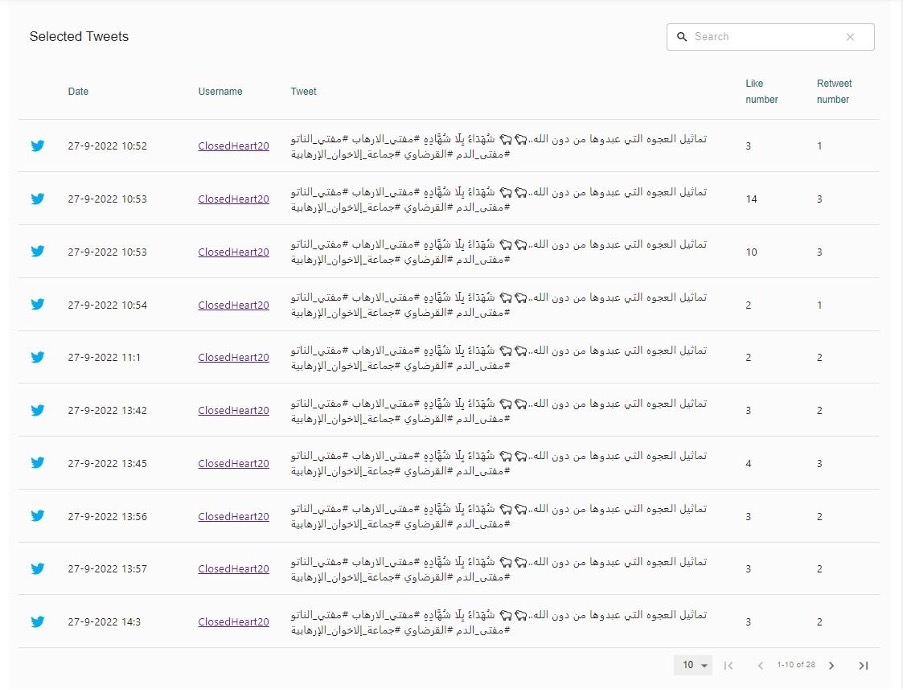
Screenshot from the SNA – InVID tool showing a portion of repeated tweets from the account Ashraf Galal.
Similarly, the account @NaderTi26396331 also engaged in this behavior, broadcasting 14 tweets, 12 of which containing the same text with slight variations in the images used. This suggests attempts to amplify the hashtags.
Ashraf is part of a network of accounts following an account named "Dawlageya Support", a term often used to refer to supporters of the state in Egypt.It is noteworthy that these accounts, including Ashraf's, follow a specific pattern of organization through an extended thread on the "Dawlageya Support" account, which is updated daily or every few days. The thread specifies the hashtag that will be tweeted during a certain time period.
The thread included hashtags that appeared in the list of the most trending topics on Twitter in Egypt in recent months.
At a time when accounts affiliated with “Jama’et Al Da’wa Al Salafeya,” the salafi group known for its strict interpretation of Islam extending across the Arab region, were actively involved in various hashtags expressing hatred of Al Qaradawi by discussing his "deviations," according to one tweet from an account named the "Salafi Call, Revealing Deviant Sects". This account identifies itself as owned by a person named Isma'il Abu Elias living in Algeria.
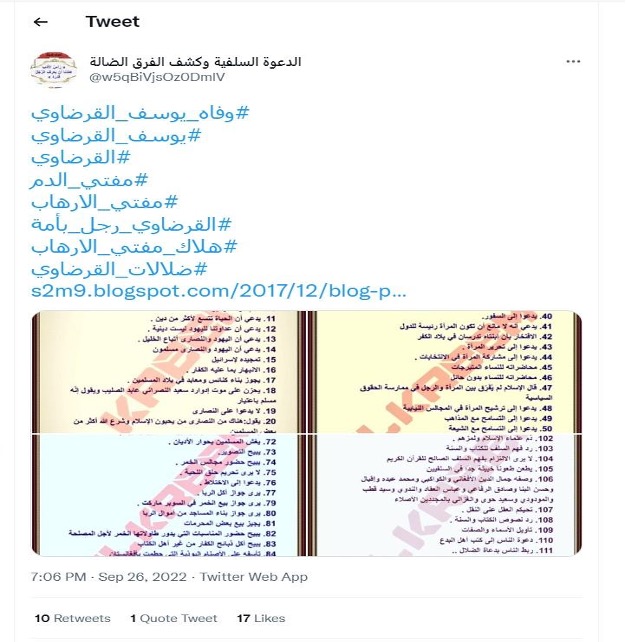
It wasn't just accounts with large numbers of followers that tweeted in attack of Al Qaradawi, such as #Terrorism_Mufti. Other accounts defending him also referred to the hashtag. Ahmed Atwan, the Egyptian media figure on the Al Sharq channel which is close to the Muslim Brotherhood, criticized what he referred to as the electronic bots using the hashtag.
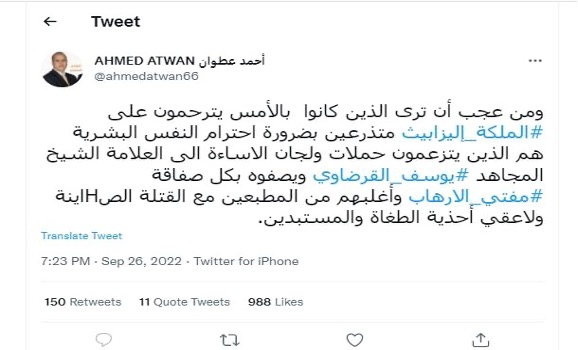
Ahmed Al Hassani Al Shanqiti, the Deputy Secretary General of the League of Scholars of the Arab Maghreb also posted a tweet with the hashtag #Terrorism_Mufti, attempting to defend him using the hashtag #AlQaradawi_a_man_worth_a_nation in the same tweet. His account is followed by 14,000 people.
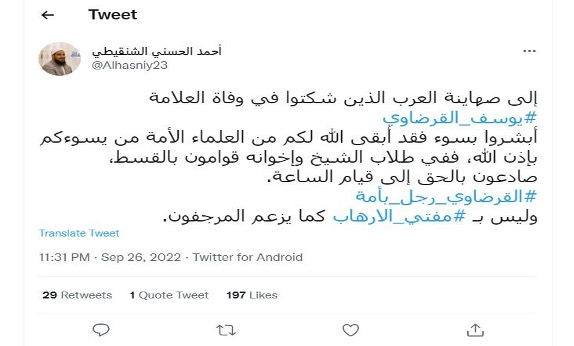
#AlQaradawi_A_Man_Worth_A_Nation
After hours of the launch of the counter-hashtags, the hashtag #AlQaradawi_a_man_worth_a_nation was launched in defense of the deceased scholar. It reached its peak on the day following his death, with a total of 5,261 tweets, 20,263 retweets, and over 102,000 likes. The campaign involved 3,449 accounts, according to Gephi data.
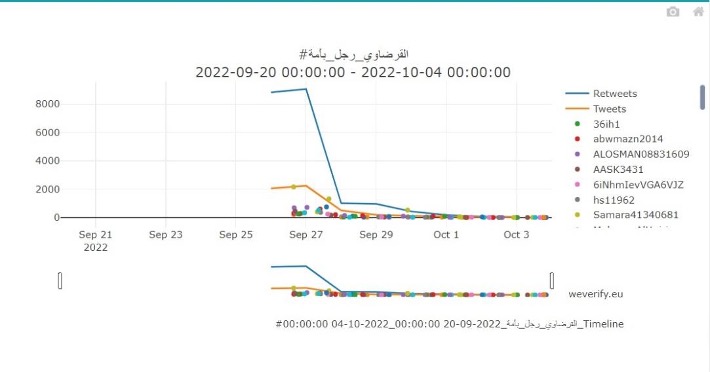
Abdullah Al Sharif, the YouTuber and program host affiliated with the Muslim Brotherhood, was behind the launch of the hashtag at 3:28 PM on September 26. In the launching tweet, Al Sharif, who has nearly two million followers on Twitter, stated that the hashtag is an attempt to "anger" what he referred to as "the idiots" after they repeated "phrases that harm the late Al Qaradawi without knowing his history." Al Sharif's tweet seems to have served as an instruction to his followers to start activity on the hashtag. This is not the first time that Al Sharif has started campaigns, as he has previously initiated hashtags within confrontational contexts related to criticizing the government in Egypt. Al Sharif posted only three tweets on the hashtag, including the launching tweet, while these tweets garnered interactions exceeding two thousand retweets and thirty thousand likes.
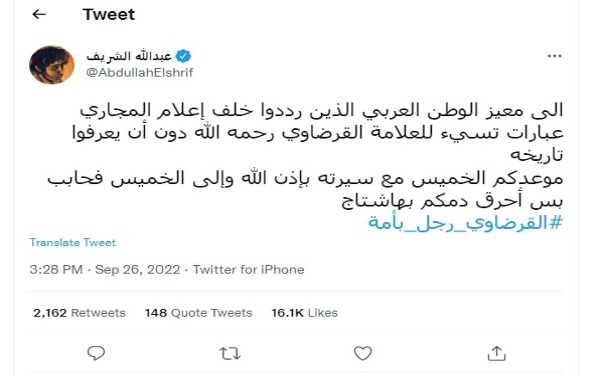
Al Sharif was also a target of a fabricated tweet about Al Qaradawi, which turned out to be false. We found the name Anis Mansour, the Yemeni writer closely associated with the Islah group, which is aligned with the ideology of the Muslim Brotherhood, among those with the most interactions on their tweets under the hashtag. We previously discussed Anis's role in mobilizing campaigns supporting the Islah group in Yemen against campaigns supporting the southern separatists. In the tweet below, Anis, spammed comments on a tweet unrelated to Al Qaradawi's death, which was posted by a Yemeni social media influencer living in Sweden.
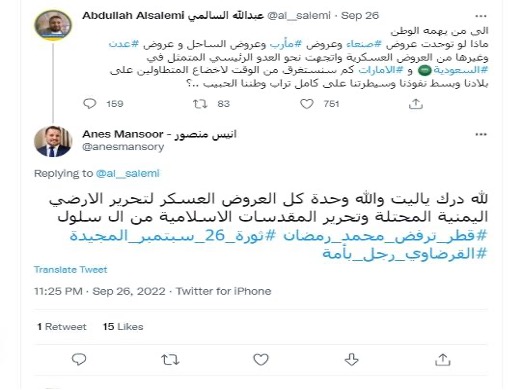
There were similar attempts to amplify the hashtag. For example, the account of Kareem El Arabi (@KareemE33156020) published 42 tweets, repeatedly using the hashtag, most of the time without any additional comments or images.
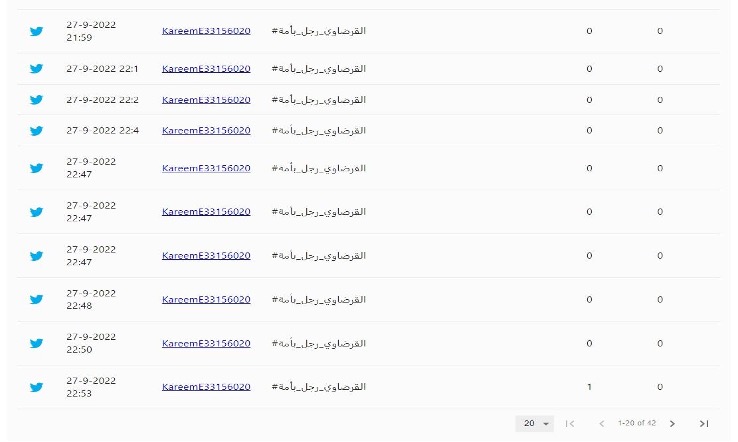
A screenshot of the repetitive content from Kareem El Arabi's account on the hashtag #AlQaradawi_a_man_worth_a_nation
Since its creation in March 2022, Kareem's account has published over 7,000 tweets. He has previously participated in online campaigns focusing on Egypt, such as the hashtag campaign #spread_the_November_11_call which gained popularity in the last days of September.
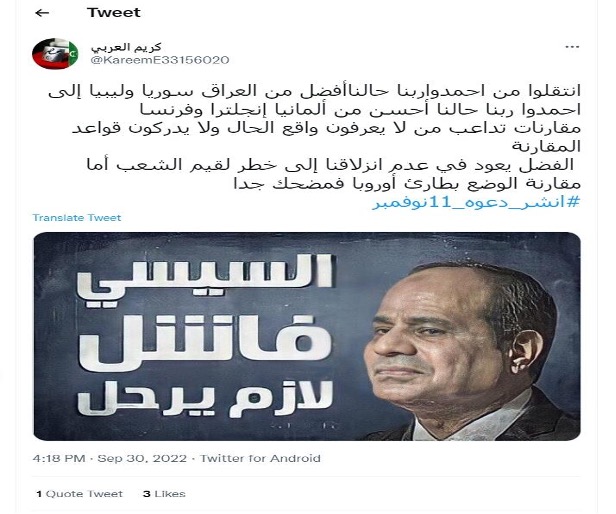
In summary:
- Both the pro and the opposing hashtags contained offensive words expressing hate speech.
- The majority of accounts participating in the hashtags were authentic accounts, although others appeared to be automated.
- There were attempts to exaggerate the size and spread of hashtags by disseminating repetitive content.
- Many high-follower accounts contributed to increasing the spread of hashtags.
- An increase in the retweet and comment rates is indicative of orchestrated campaigns.
- Some accounts participating in the campaigns were part of larger previous online campaigns in Egypt and Saudi Arabia.
Tools used:
InVID Verification Plugin
Twitter Search
Gephi
